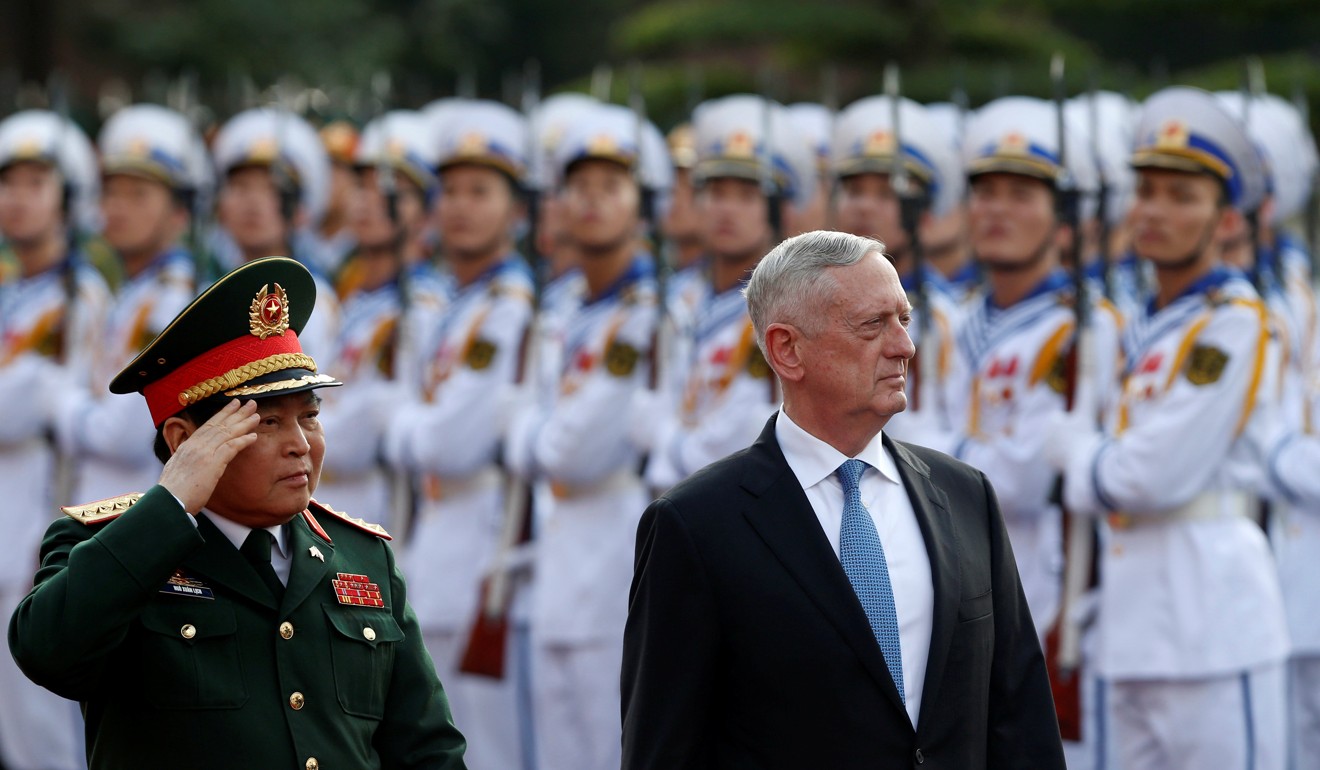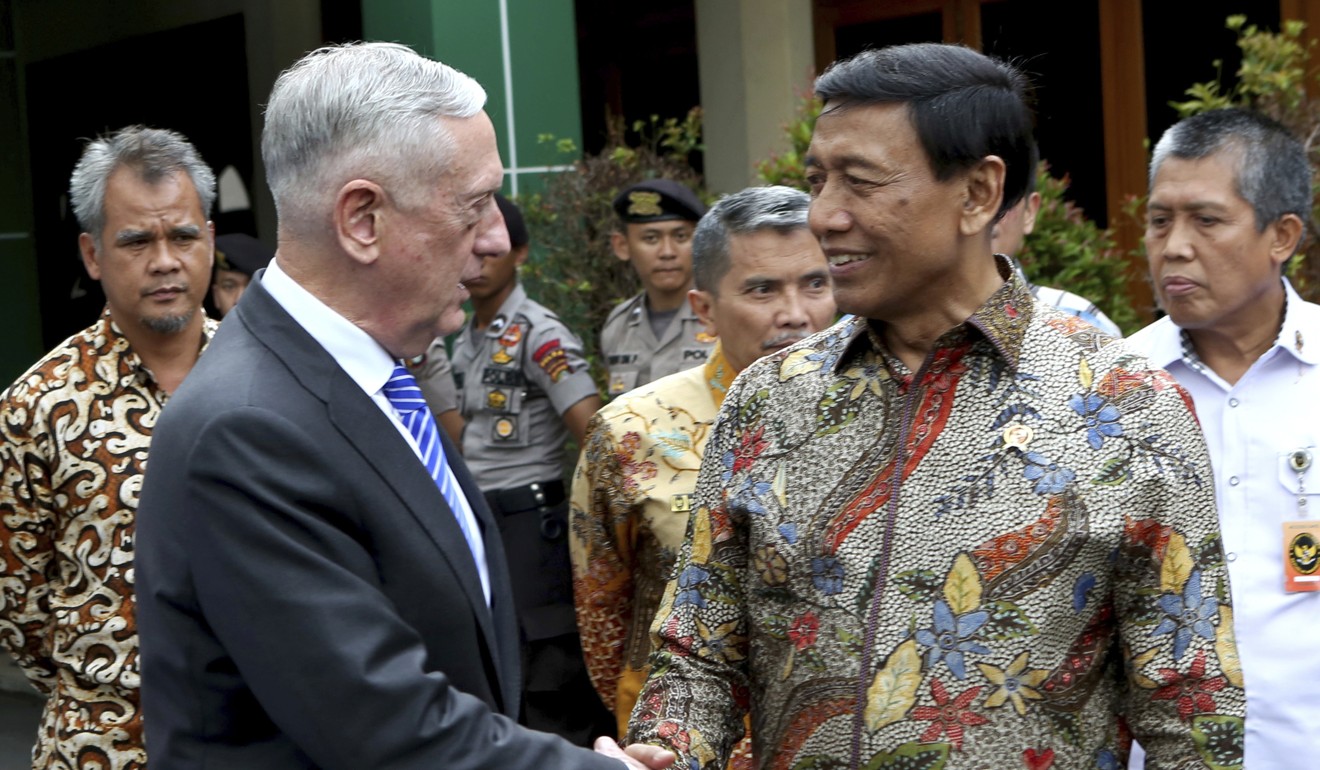
US military chiefs reach out to Asian allies as great power game heats up with China and Russia
Pentagon seeks to reassure region that it is here to stay as White House shifts defence focus from Middle East to Beijing and Moscow
China, the United States and Russia are returning to “an era of great power competition” but the Pentagon is determined to deter the players from confrontation and aggression.
That was the message US Secretary of the Air Force Heather Wilson delivered in Manila on Friday as her boss, US Defence Secretary Jim Mattis, ended a weeklong trip to reassure Indonesia and Vietnam of US commitment to the region.
“[The US’ National Defence Strategy] also recognises explicitly that we are stronger together with our allies and partners than we are alone,” Wilson said.
“One of the important elements of our defence strategy is to deepen our relations with allies and partners ... in the Pacific region.”

She said the big distances between countries in the region were a major challenge for the US, but Washington remain committed to promoting “a rule-based international order” in the Indo-Pacific.
“Our approach to the Indo-Pacific region is to promote a stable and prosperous region in which a rule-based international order is respected, not just from large powers but for every country,” she said.
“Our strategy seeks to build a strong military status in order to convince both China and Russia to choose peaceful competition within common principles and cooperation on key issues rather than choosing confrontation or conflicts and aggression.”
The comments came a week after Mattis unveiled the defence strategy, which puts countering China and Russia at the top of US priorities for years to come. For more than a decade the focus was on fighting Islamist militants in the Middle East.
Mattis called China and Russia “revisionist powers” that “seek to create a world consistent with their authoritarian models”.
Renmin University international relations professor Shi Yinhong said Mattis and Wilson were trying to reinforce the need to counter China’s rise.
“Mattis is more clear-headed than Trump [on defence strategy] – he understands the importance of allies’ support and has confirmed the policy direction in identifying China as its key rival in the long term,” he said.
But Shi, who also advises the Chinese government on foreign policy, was sceptical about the Trump administration’s ability to advance that cause given the White House’s isolationist agenda.
“Diplomatically the US is isolated, so how can it compete with China and Russia?” he said.
Nevertheless, Indonesia and Vietnam are trying to modernise their militaries and have pushed back on China’s expansive territorial claims.

During his stop in Jakarta, Mattis discussed maritime cooperation and freedom of movement in the South China Sea, a region over which Beijing has extended its dominance in recent years.
A US aircraft carrier is also expected to visit Vietnam in March, bringing the biggest contingent of US forces to the Southeast Asian country since the end of the Vietnam war in 1975.
After Manila, Wilson will head to Japan and South Korea. She will visit US Air Force personnel stationed in South Korea and discuss “mutual security interests”, including Pyongyang’s nuclear threat, with senior officials in Seoul.

